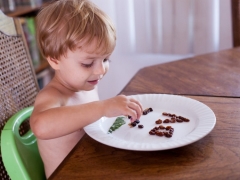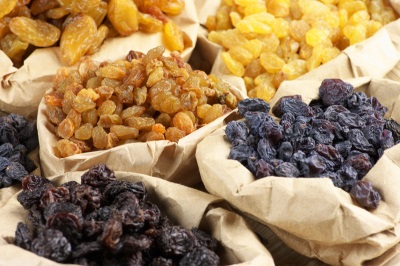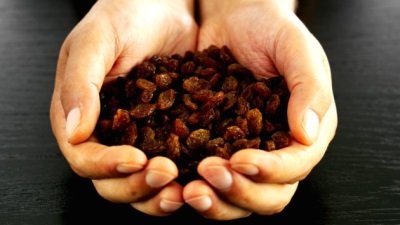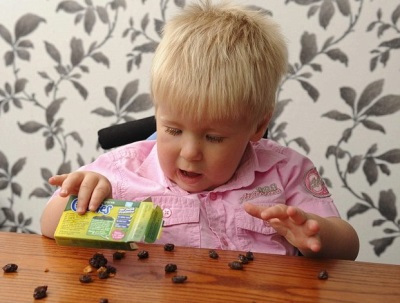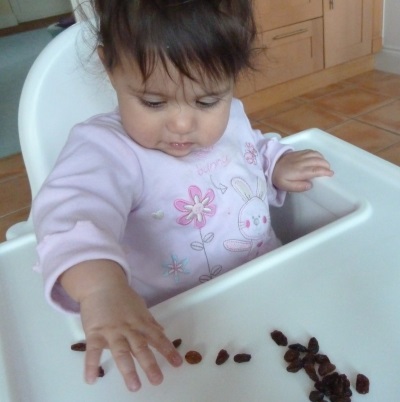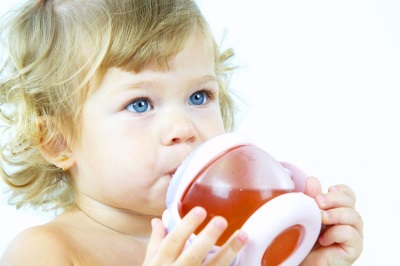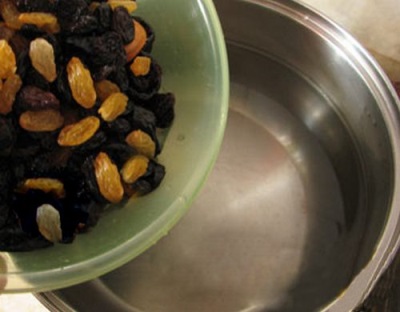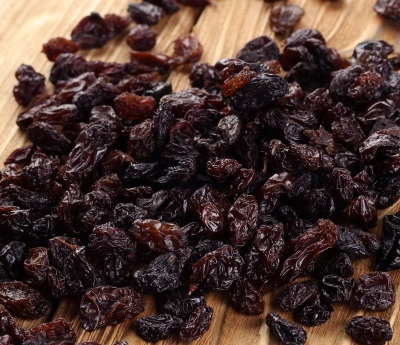Is it possible to give raisins to children and how to make compote from it?
Raisins, which are dried grapes, are considered a useful alternative to sweets. This type of dried fruit has a pleasant taste that children like, so every mother is interested in how old a raisin can be given to a baby and how this product is useful for a child’s body.
Benefit
When dried in grapes, almost all minerals and most of the vitamins are stored.
- Raisin is a source of glucose and fructose, so this product will give your child the energy to learn about the world.
- Dried grapes are rich in B vitamins, ascorbic acid, vitamin E, manganese, selenium, zinc, potassium, phosphorus, iron, and many other compounds that are valuable to the children's body.
- In raisins, they note the properties of maintaining the proper growth of the child’s body and immune function, as well as the work of the heart muscle.
- The use of such dried berries has a positive effect on the skin, bones, teeth and nails.
- A decoction of raisins helps to compensate for fluid loss during fever or vomiting. It is also recommended for acetone in children, for frequent colds, bronchitis, digestive disorders or vegetative-vascular dystonia.
- Due to the high content of potassium, the use of raisins stimulates intestinal peristalsis, which has a mild laxative effect and helps in getting rid of constipation, as well as being its prevention.
- Since dried grapes have the ability to improve blood formation, this product helps in the treatment or prevention of iron deficiency anemia.
- Raisins have a beneficial effect on the nervous system and stimulates brain development. Its use improves sleep and mood.
Harm and contraindications
- Although rarely enough, allergies can occur in raisins.
- This product can not be given with flatulence and diarrhea.
- Sometimes a chemical method is used to dry the raisins, which reduces the benefits of the product.
- Raisin is contraindicated in diabetes, as well as in stomatitis.
- A high carbohydrate content and high calorie content make such a product undesirable and with excess weight.
- Raisins can be contaminated (when rinsing with water, wrinkled berries are poorly washed off), which will cause an intestinal infection.
- When overeating raisins may appear nausea, flatulence, itchy skin rash, diarrhea.
Sometimes the children like the raisin compote so much that they begin to refuse ordinary water. To solve this problem, you should gradually reduce the amount of raisins in the preparation of compote.
From what age can I give?
Pure dried grapes are recommended to give to children who turned 1.5-2 years old. Earlier acquaintance with raisins can be dangerous for babies, because due to the lack of teeth or their small number, the baby cannot chew the berries well, which increases the risk of choking.
In addition, the digestive tract of children under the age of 1.5 years can hardly cope with the digestion of dried fruits.
Therefore, one year old child should not be given raisins.
Babies older than 6 months are allowed to offer raisins in the form of compote or decoction. These drinks can be prepared by yourself or bought in a store, for example, Agusha compote made from apples and raisins with dried apricots, suitable for feeding babies over 8 months old.
When cooking at home, other dried fruits can be added to raisins when the child is 1 year old.
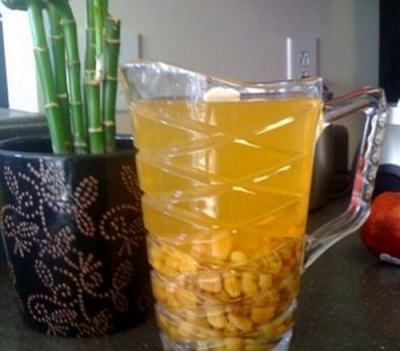
Enter into the diet
Having prepared a decoction or compote of raisins for an infant, give the crumbs for the first time only one spoonful of such a drink. It is preferable to make it for breakfast, so that by the end of the day it would be clear if the baby had a normal new product. Further, the volume of drinking can be gradually increased to age norms.
Children over the age of 1.5 can be given a few raisin tricks if:
- The child has enough teeth to chew on the berries.
- Baby during the meal is not indulging, and behaves calmly.
- At the baby it turns out to hold small subjects with fingers.
- The child learned to chew on food pretty well.
Dried grapes over the age of 1.5 years, you can replace sweets by adding such a product in casseroles, cereals, cakes and other dishes.
How to cook a decoction and infusion
With the help of a decoction made from raisins, you can diversify the child's menu, improve the baby’s sleep and strengthen its immunity. To prepare such a drink is very simple - rinse 200 g of raisins, pour a liter of water and cook over low heat for about 20 minutes. Sugar is not added to the broth, because even without it, the drink will be tasty and sweet. After straining, the broth is cooled and only then given to the baby from a drinking bowl or bottle.
If you replace 100 grams of raisins per 100 grams of prunes in this recipe, you will get a decoction with a mild laxative effect. This drink is worth to treat the crumbs, which has problems with the work of the digestive tract. Like a decoction of raisins, a drink with the addition of prunes helps to increase the body's defenses.
If instead of prunes to take 100 g of dried apricots, you get a decoction with a rich taste and a nice color. It is advised to give for colds, as well as to quench thirst and hunger. In the case when such a drink of dried apricots and raisins seems mom too sweet, it can be diluted with clean water.
Dr. Komarovsky advises brewing raisins in a thermos, following this proportion - a tablespoon of raisins with a glass of boiling water. The drink will be ready in 30-40 minutes. This infusion is a popular doctor recommends giving children with elevated acetone or high temperature if there is a risk of dehydration, since many kids drink this drink more readily than regular water and saline solutions.
Comment doctor about raisins and decoction of it, see the following video.
How to cook compote
To cook the raisin compote for a child, dried berries are taken in the same proportion as for the decoction. The only difference is the cooking time, because compote cooks longer (up to an hour). Sweetening compote is not necessary, but if you want you can add a little honey to it.
To diversify the taste, along with raisins can boil prunes, dried apples, black currant leaves and other ingredients.
Tips for choosing
When buying raisins for a child, be careful and picky:
- The product should be dried in the shade (with such drying do not use chemicals).
- The stones in the raisins should be absent (buy a variety of kishmish).
- Fruits must be dull (if the berries are shiny, then this is evidence of oil treatment).
- The presence of tails on the raisins indicates the greater usefulness of such berries.
- Raisins should be free of garbage and mold.
Acquired raisins should not be given to a child without prior preparation. Scald the berries with boiling water, then soak in warm water for 30 minutes. After thorough washing and cleaning of the tails, steamed dried fruits can be offered to the baby safely.
For more information about the properties of raisins, see the program "Live Healthy".
